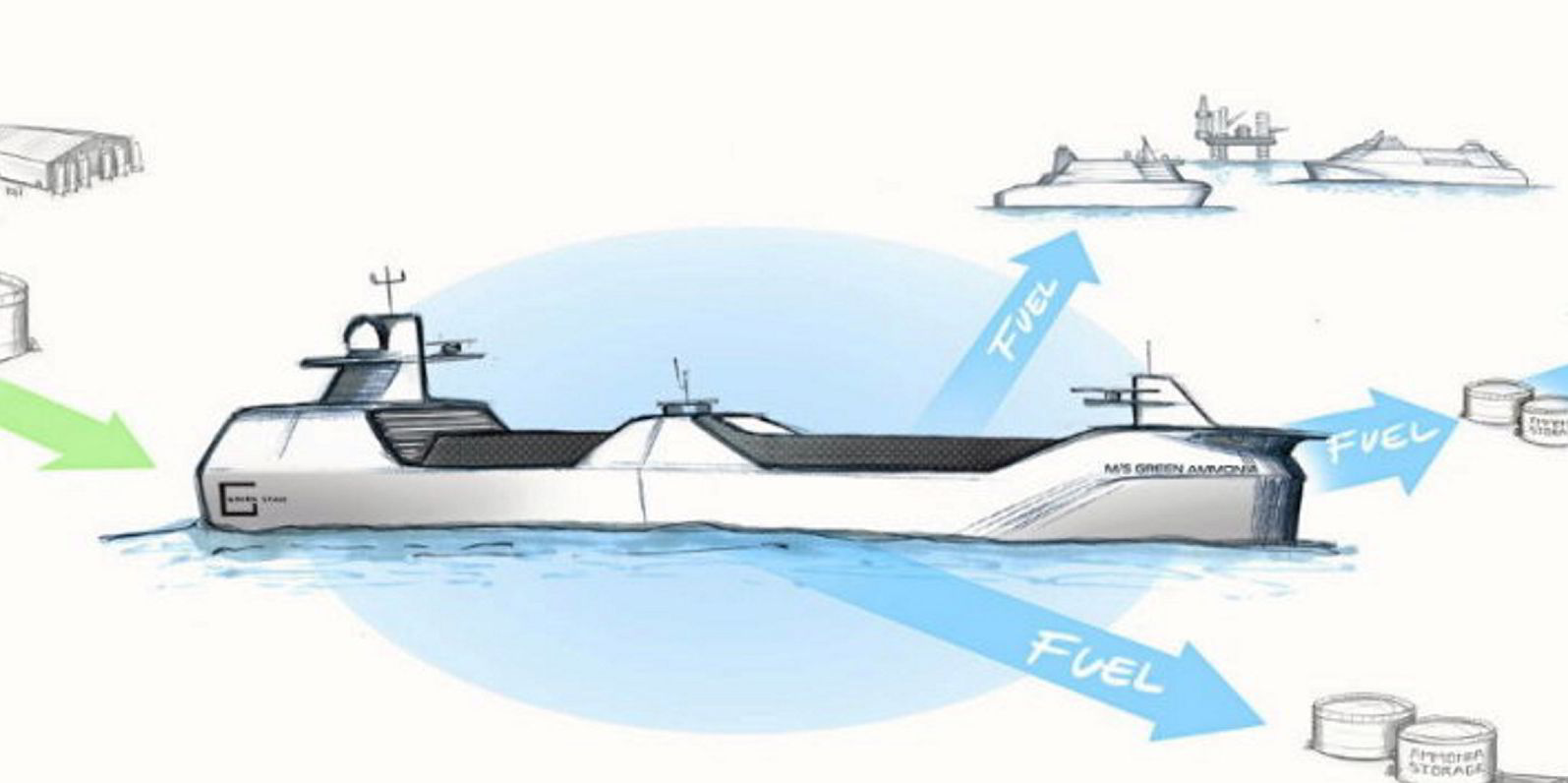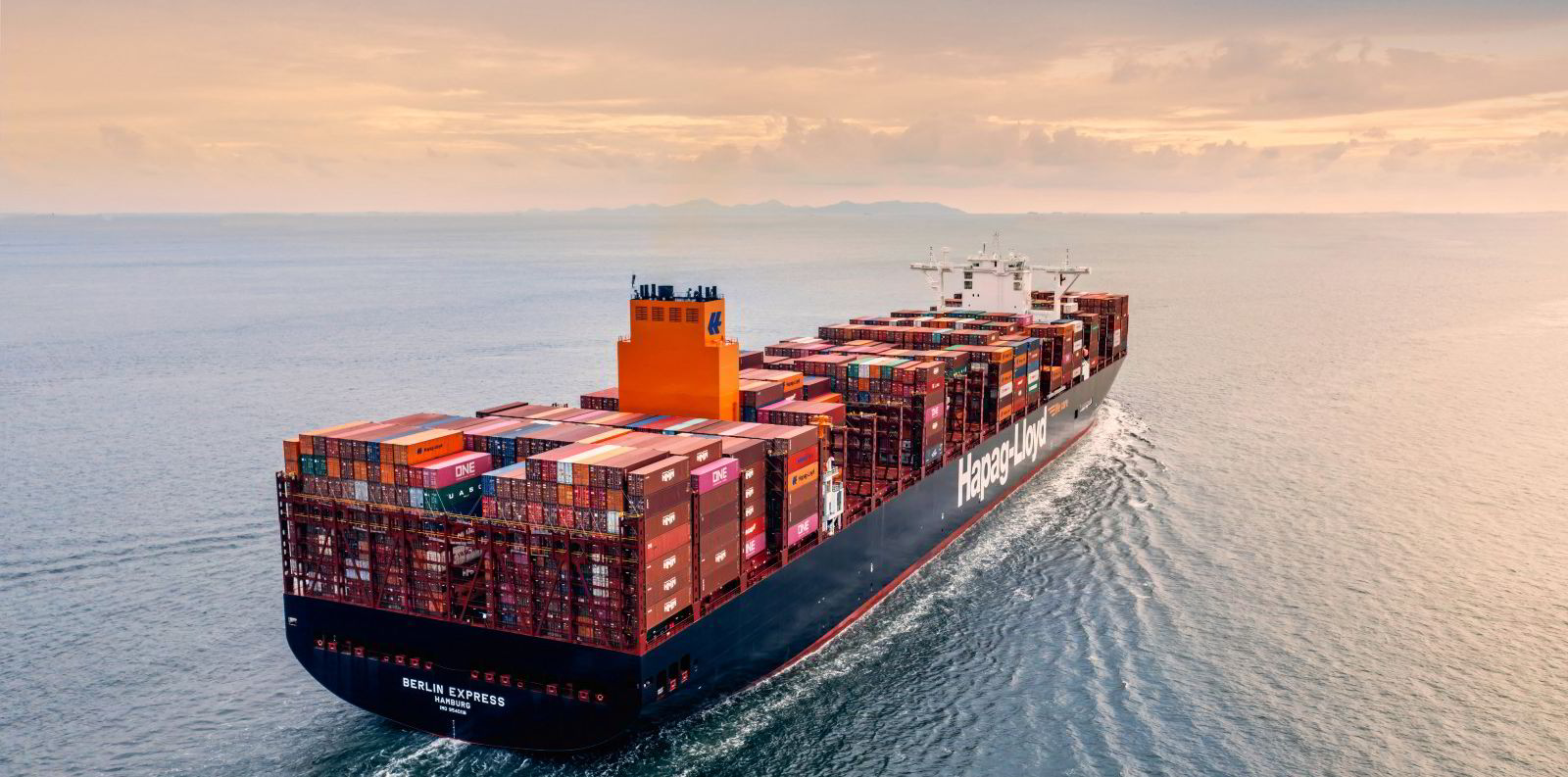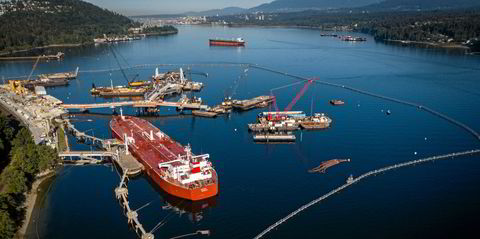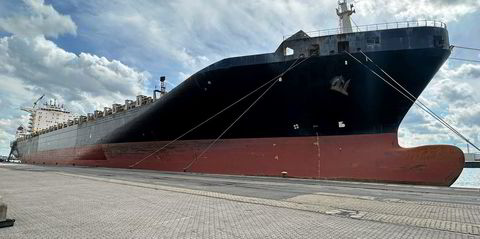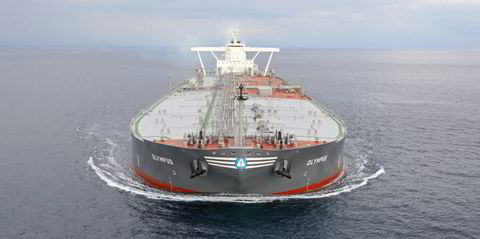Hapag-Lloyd has won a world-first tender from a group of cargo owners willing to pay for near-zero fuel use, linked to cargoes being shipped between Singapore and Rotterdam.
Amazon and over a dozen more cargo owners have signed a first-of-a-kind commercial tender with the German line for the transportation of containers using the attributes of clean fuels.
The cargo owners are members of the Zero-Emission Maritime Buyers Alliance (ZEMBA), which describes its goal as accelerating commercial deployment of zero-emission shipping by aggregating its demand. ZEMBA was formed only a year ago.
As well as Amazon, the companies involved in this tender include brands such as Nike, Patagonia and Sport Thieme.
The ZEMBA tender will see the companies use a process known as book and claim, which has been adopted by the Maersk McKinney Moller Centre for Zero Carbon Shipping to be used in the maritime sector.
The main aspect of the process is that shipping company Hapag-Lloyd promises to deploy the green fuel, in this case, a methane-based biofuel, but not necessarily on the vessels with ZEMBA member cargoes on board, nor on the route which is specified for this tender, between Singapore and Rotterdam from 2025 to 2026.
However, with the book and claim system, the attributes of the green fuel are linked only to the ZEMBA-linked cargoes and not the cargoes of the vessel on which any green fuel is carried.
ZEMBA president and chief executive Ingrid Irigoyen told TradeWinds after the announcement of the tender during this year’s Singapore Maritime Week that the process was done with the best available guidance when looking at the life cycle attributes of the waste product-derived biomethane that will be used throughout the tender.
“We tried to use existing guidelines and regulations as reference points wherever we could because we knew that would be easier for the supply chain,” she explained. “But we did have to patch together a set of guidance from different approaches. We decided on a zero-emissions definition, that is the definition for now for the first round tender, that was a 90% emissions reduction on a lifecycle basis for all greenhouse gases.”
Navigating guidelines and regulations
It was a challenging goal, Irigoyen said.
“We wanted the industry to stretch and reach but we also wanted it to be reachable. So as you can see, it was reachable. And for our next round, we want to inspire an even further stretch so that we can get beyond biogenic feedstocks.”
To encourage the use of fuels ZEMBA has opted not to require that the biomethane is bunkered directly onto the gas-powered Hapag-Lloyd container fleet that carries the signatories’ cargoes, using the book and claim system.
“Book and claim does have to be executed very carefully,” Irigoyen said. “We believe it is absolutely essential to catalyse the decarbonisation of this industry and to accelerate it because we have to get the willingness to pay from wherever we can find it in the world, and channel it towards the most effective emissions reduction technologies.
“But we need to do that in a way that’s verifiable, and transparent. And that’s why we’re partnering to actually develop a best-in-class nonprofit book and claim system to do that.”
Maersk McKinney Moller Centre chief officer for government, business and analytics Pernilla Dahlgaard told TradeWinds that a book and claim system is a decoupling of the service from the environmental impact.
“Shipping will not go from black to green overnight, so we will have some customers who are not willing to pay an extra premium for the green fuel. We can circumvent the willingness to pay or not with tokens.”
Hapag-Lloyd chief executive Rolf Habben Jansen said that the container line needs cargo owners like the ZEMBA members to be part of the efforts to decarbonise.
“We are proud to have been selected by ZEMBA for this important zero-emission shipping initiative and to be able to provide immediate emission reductions to ZEMBA members,” he said.
“To reach our goal of net-zero ship operations by 2045, we need partners like ZEMBA to support us on our decarbonisation journey and push the boundaries of what’s possible.”
Irigoyen said that a second tender will be issued later this year with the intent to buy the attributes of e-fuels, with ZEMBA members pushing to get their tier-three emissions reduced.

